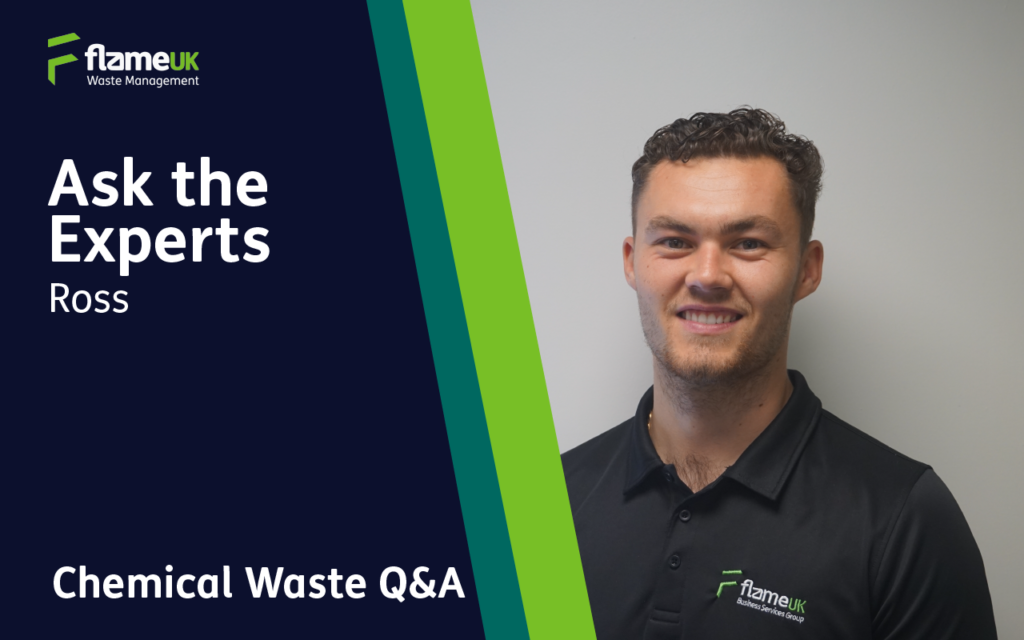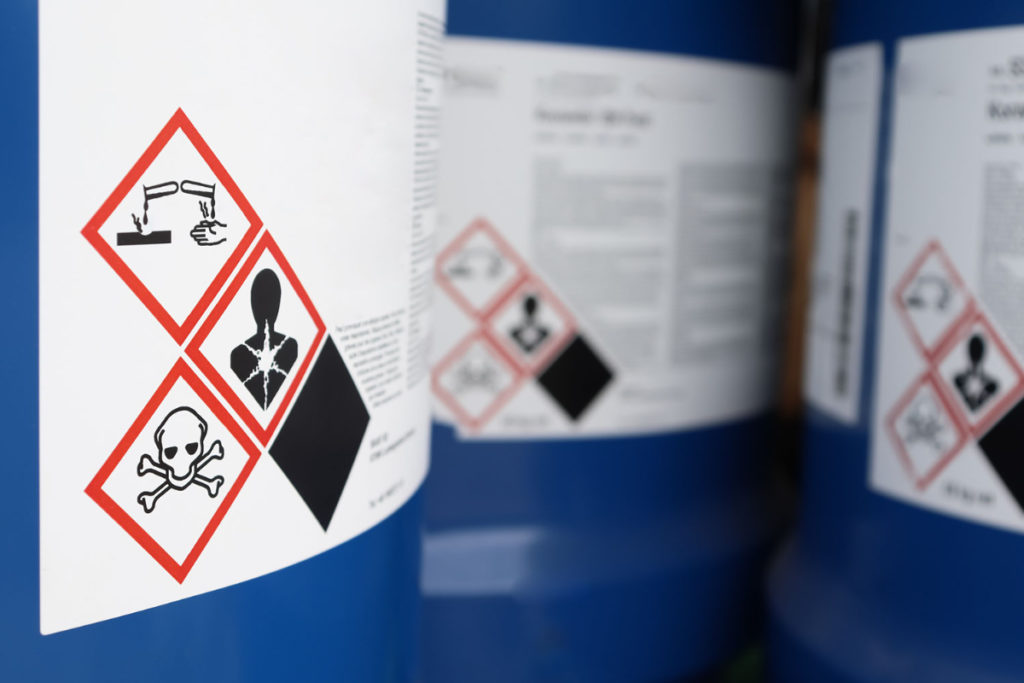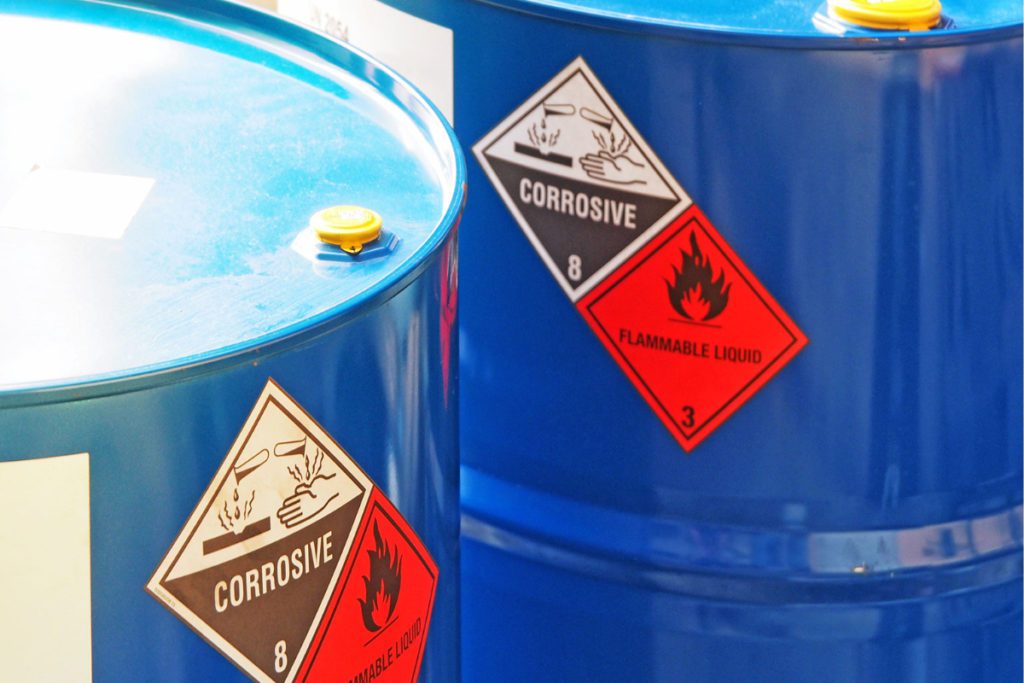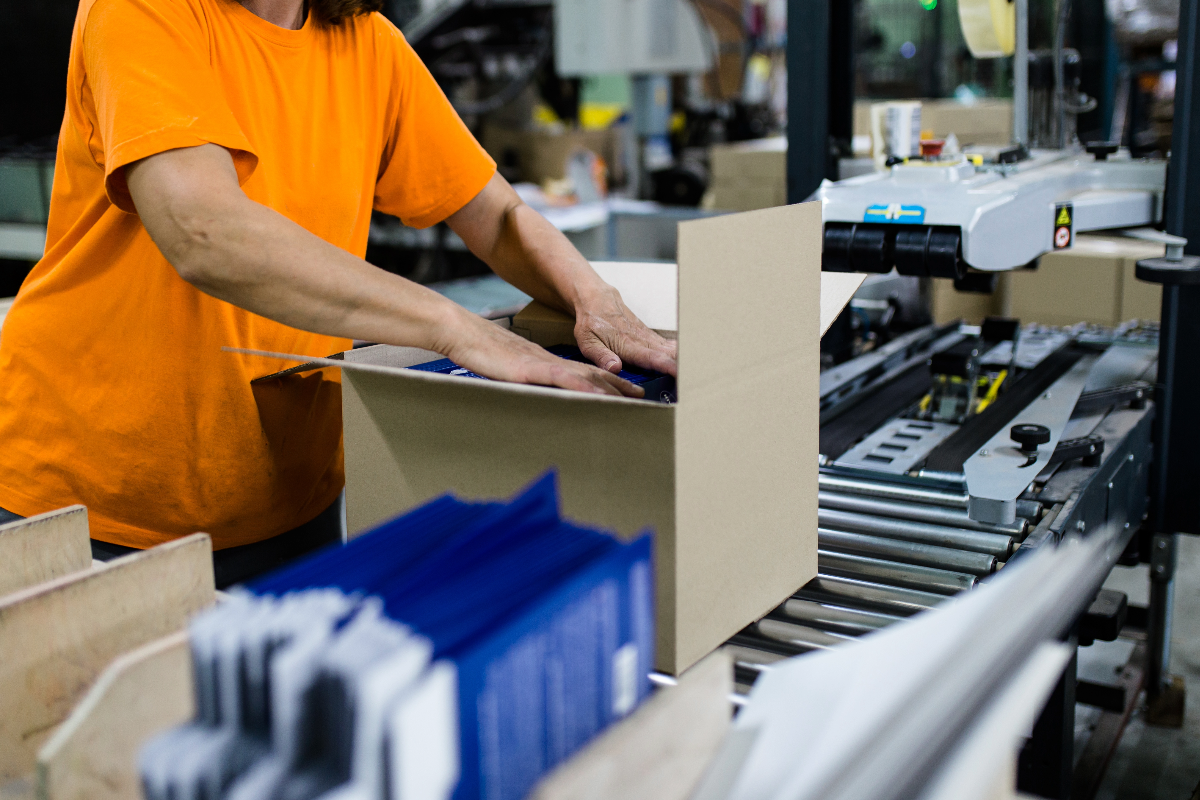BLOG
Ask the Experts: Ross – Chemical Waste

Managing chemical waste can be a bit of a minefield. It needs to be stored and disposed of correctly to ensure everyone’s safety. But how can you do this? We sat down with Ross, one of our waste experts, to find out everything you need to know about your business’ chemical waste.
So, Ross, what is chemical waste?
Chemical waste refers to any unused or unwanted excess of materials which may pose a danger or threat to human or environmental health. This type of waste can come in lots of different forms, liquids, solids, or gases. Things like oils, batteries, cleaning products and paints all fall under the umbrella of chemical substances. Some dangerous materials, such as asbestos, are also classed as hazardous waste so also need to be treated with care during disposal.
Is chemical waste hazardous?
It’s difficult because not all chemical waste is classed as hazardous, but it all still needs to be handled with care. This type of waste falls under lots of different regulations, such as COSHH (Control of Substances Hazardous to Health). The most common types of hazardous substances are solvents, acids, paint, and sludges. A lot of laboratory waste is also considered hazardous waste too.
How could someone find out if their chemical waste is hazardous?
Finding out whether your waste is hazardous is easy. You’ll be able to look at Material Safety Data Sheets (MSDS) which will state whether a material is a threat to human health or environmental health. If it is a threat, you’ll be able to identify this waste is hazardous. You can also look at the European Waste Catalogue (EWC) code assigned to the waste. If it has an asterisk (*) after the code, this shows that the waste is hazardous.


What’s the best way to store chemical waste?
The best way to store chemical waste is in a sealed container within the original packaging which can be placed in larger drums. These can be 60L to 250L. You can even store the waste in a locked safe. These will need to have a UN code to identify it as hazardous. This makes sure that everyone who comes into contact with it is safe.
What’s a UN code?
When chemical waste is transported, a UN code is used to state the nature of the substance inside a container. This is usually a four-digit code which will distinguish if a material or substance is Dangerous, Flammable or Toxic.
How is chemical waste disposed of?
There are lots of different ways you can dispose of this type of waste. The method that’s used all depends on the classification of the waste. We’ll try to recover as much of the hazardous material as possible for recycling. Some can even be transformed at the molecular level and be neutralised to ensure safe waste disposal. But this all depends on the classification.
What’s your advice for a business struggling to manage their chemical waste?
If a business is struggling to manage their chemical waste, the best thing they can do is get in contact with an expert. It’s so important that you handle the waste correctly to keep everyone safe. We can provide new containers for storing hazardous waste safely and arrange for a hazardous waste collection on either a schedule or an ad hoc basis. We’ll organise for chemical waste disposal to make sure your hazardous chemical waste is disposed of safely and correctly.
For more information…
Want to find out more? Check out the links below:
- What is clinical waste and how to dispose of it?
- How to recycle your oil waste
- What is the EWC code and why do I need it?
- Staying safe with hazardous waste
Contact us
Our experts at Flame UK are on hand to help your business manage its chemical waste. We can work with you to figure out a tailor made hazardous waste management plan to help your business work towards a sustainable solution for your waste. Get in touch with one of our experts today to find out more about our hazardous waste collection service.




